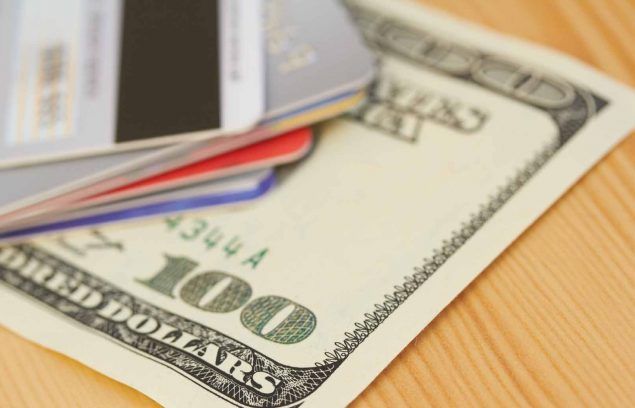Virtual Collection Agent reduces stress for your consumers while increasing the overall consistency and efficiency of your debt collection process
Collect more at lower cost Reduce charge-offs by 10 percent.* Virtual Collection Agent collects almost $2 billion of debt annually for some of the world’s biggest brands
Consistent collections Create different online debt collection sites for different consumers, enabling you to test offer strategies and easily change the content
Future-proof solution Scale instantly to respond to business and market needs with a fully PCI-compliant solution that minimizes risk while increasing security and compliance
Offer a wide range of convenient eBilling and ePayment options to win consumer loyalty and increase revenue. Virtual Collection Agent emulates the interactions of your best collection agent in a convenient 24-hour online environment.
Dealing with debt that has gone into collections can be stressful. You may receive calls from aggressive collectors demanding payment. It can negatively impact your credit score. And if ignored, you could face legal action.
But there are ways to take control of the situation when a creditors collection service contacts you for payment. With some planning and proactive steps you can resolve your debt in collections and move forward.
Confirm the Debt is Yours
The first step is to verify that you actually owe the amount claimed. Debt collectors do sometimes try to collect on debts that are inaccurate, already paid off, or not yours.
Check your credit reports from Equifax, Experian, and TransUnion to see the details on the collection account Make sure the amount owed and other information is correct
If you don’t believe the debt is yours, you have the right under the Fair Debt Collection Practices Act to send the collection agency a debt validation letter within 30 days of their first notice to you. They must then verify in writing that you actually owe the amount.
Know Your Rights Under the FDCPA
The Fair Debt Collection Practices Act provides several protections when dealing with creditors collection services:
- Collectors cannot call you before 8 AM or after 9 PM without permission.
- Collectors cannot contact you at work if you’ve told them it’s prohibited.
- Collectors cannot harass, abuse, or threaten you.
- You can send a cease and desist letter to stop contact.
- Wrongful collection practices can be reported.
Use these rights to your advantage as you work to resolve the debt
Calculate What You Can Pay
Review your finances to determine what you can reasonably afford to pay on the collection debt. Look at your income, regular expenses like rent and groceries, and any other existing debts.
You may need to trim discretionary spending for a period of time to free up funds. But avoid impacting necessary expenses or raiding emergency savings if possible.
If you can swing it, paying off the full amount owed will help limit further credit damage. If not, aim to pay as much as your budget allows over time. Nonprofit credit counseling services can help analyze your financial situation to identify a workable payment plan.
Contact the Collection Agency
Once you’ve verified the details and decided on a payment strategy, it’s time to contact the creditors collection service. Be prepared with the account number, amount owed, and your payment proposal before calling.
Explain your situation calmly and respectfully. Let them know if there are any errors in the amount demanded. Make your payment offer, and be firm if you cannot afford the full amount upfront.
Get all payment terms in writing before providing banking or credit card information. Make sure you know how to cancel payments if needed.
Make the Agreed Upon Payments
Follow through on whatever payment schedule you arrange with the collector. If funds allow, making extra payments can help resolve the debt faster and limit interest charges. Automating payments from your bank account ensures on-time payment.
Keep lines of communication open with the collector. Inform them right away if your situation changes and you need to adjust the agreed upon repayment.
Be Diligent with Payment Tracking
As you make payments, be diligent about tracking the status of the collection account. Check your credit reports to verify payments are being accurately reported by the collector.
The account should display as “paid” or “settled” once your payments satisfy the amount owed. If not, dispute the incorrect information with the credit bureaus.
Understand that even once paid, the negative collection account may remain on your report for up to 7 years. But clearing the balance will stop further damage.
Explore Debt Settlement Options
If unable to pay the full amount, you may be able to settle the collection debt for less than what is owed. The collector gets a portion of the amount due, and agrees to forgive the rest.
debt settlement may be an option if:
- You have a lump sum available to put towards settlement. This is often 20-50% of what you owe.
- The collector did not pay full price to acquire your debt and has room to settle.
- You have fallen behind on payments with no ability to get caught up.
Not all creditors will settle, but it can’t hurt to make the request if you meet the criteria above. Get any agreement for less than full balance repayment in writing before paying.
Don’t Ignore the Debt
It may be tempting to try avoiding engagement with a creditors collection service entirely. But ignoring collections is rarely the right approach.
Without resolution, the collector can sue you, garnish wages, put liens on property, and continue wrecking your credit. They can keep contacting you within the limits of the law.
And you lose the chance to contain or repair credit damage through payment or settlement. Leaving collections unaddressed should only be a last resort if you truly have no options.
Consider Debt Consolidation
If you have multiple debts in collection, consolidating them into a single payment each month may help. This lets you pay off the combined amount faster by simplifying payments.
You can consolidate by taking out a personal loan or balance transfer credit card to pay off the collections. Nonprofit credit counseling services also offer consolidation programs combining multiple debts into one payment.
Consolidating may allow negotiated reduced interest rates since you are paying everything owed in a consolidation agreement. Make sure loan terms and fees make sense for your situation if consolidating.
Rebuild Your Credit
Resolving your account with a creditors collection service is an important first step in rebuilding credit damaged by unpaid debt. Once you’ve reached a payment agreement, focus on further improving your credit standing.
- Make all payments, including non-collections debt, on time each month
- Lower credit utilization by paying down balances
- Limit new credit applications while scores are low
- Monitor credit reports and dispute any errors
- Consider becoming an authorized user on someone else’s credit card account to add positive history
With diligent effort, your credit can recover over time even after a negative collection experience.
Get Help if Needed
If communicating with collectors becomes too stressful or harassing, get help dealing with them. Notify the Consumer Financial Protection Bureau or your state attorney general of abuse. Hire a debt settlement service to negotiate repayment terms on your behalf if needed.
Nonprofit credit counseling provides free sessions to overview your debt and credit situation. They can intervene with collectors and create debt management plans you can afford.
Seeking help is wise if collectors become threatening or you feel unable to manage communications on your own. You have options – don’t go it alone.
Take Control of Your Collections Debt
Unpaid bills going to collections can be overwhelming. But remember you have rights and repayment methods at your disposal.
Confirm the details, know the law, calculate what you can pay, contact the collector, settle the debt, rebuild credit

Customize and personalize collection offers
Reach different sets of consumers, different types of debt and different strategies so you can make the right offers.
Raise awareness for more debt resolution to boost online contact rates
Address different consumer segments and maximize offer acceptance rates by creating an unlimited number of websites
Make real-time offers during consumer sessions to increase likelihood of acceptance and satisfactory completion
Match the right offers with the right consumers


Save on collections with an intuitive strategy manager that matches the right offers to the right consumers and gives consumers a self-service option to relieve outstanding payments.
ACI’s Virtual Collection Agent now features arrearage management, an automated offering that gives your customers the ability to self-serve, allowing you to match the right offers with the right consumers.
GET MORE FROM YOUR Billing Platform
Collect payments faster and easier
Offer your consumers the convenience they expect with an easy-to-integrate technology. ACI’s highly configurable solution is pre-built for integration with 100+ systems.
Automate your “Top Agent” behavior online for 24-hour coverage
Build and adapt collection strategies based on rule sets and individual consumer information
Reach more accounts with tools such as strategy manager, smart rules, incremental payments and rich reporting
Personalize payment offers with the consumer’s account information for earlier payment
How Do I Handle Debts That Are In Collections?
FAQ
Should I pay a bill that went to collections?
Yes, you should still pay a debt even if it has gone to collections. Here are a few reasons why: Credit Impact: Unpaid debts in collections can significantly harm your credit score. Paying the debt can help mitigate further damage and may even improve your score over time.
Who does FCS collect for?
Fidelity is a full-service collection agency that can take care of an account at any point in the process of collecting. We specialize in Healthcare, Financial Institutions, Municipal and Property Management accounts. With over 2,000 active clients, we know how to collect your accounts.
How do I pay my credit collection services?
To pay a debt collector safely, use a method that gives proof of payment. For example, mail a check with a return receipt or use a secure online payment portal that the collector provides. Documentation provides evidence of payment in case of any disputes.
How many points will my credit score increase when I pay off collections?
That means paying off debt in collections won’t improve your score. There will be a collection account on your credit report for seven years from the date the debt became past due. After the seven-year window closes, the collection account is automatically removed from your credit report.
What are the different types of credit collection services?
Credit Collection Services, CCS Offices, CCS Collection, CCS Payment, and CCS Commercial, CCS Companies, and CCS Credit Collection Services are some of the names they go by. CCS Collections buys debt from creditors. Then they work to collect all or a portion of that debt from consumers like you.
Who is credit collection services?
Credit Collection Services (CCS) is recognized as one of the nation’s largest and most respected collection firms. For over 50 years, CCS has focused its resources to professionally and comprehensively service consumer-related payment obligations.
What does CCS collection do?
The company collects debt in a variety of industries including banking, financial services, healthcare, utilities, and insurance. Credit Collection Services, CCS Offices, CCS Collection, CCS Payment, and CCS Commercial, CCS Companies, and CCS Credit Collection Services are some of the names they go by. CCS Collections buys debt from creditors.
What is CCS payment?
CCS Payment refers to the payment portal used by Credit Collection Services for debt repayment. Does CCS Report to Credit Bureaus? Yes, CCS does report to credit bureaus, which can show up on your credit report. What is CCS USA? Credit Collection Services is another name for CCS USA. Credit Collection Services is a debt collection agency in the United States.
Is CCS a legitimate debt collection agency?
Based on the available information, CCS appears to be a legitimate debt collection agency. But before you deal with any debt collection agency, you should do your own research and use your best judgment. Verify the Debt: Ask for a written notice of the debt and read it carefully to make sure it is correct.
Does CCS report to credit bureaus?
Yes, CCS is known to report to credit bureaus, which can affect your credit history. What is CCS USA? Credit Collection Services is another name for CCS USA. Credit Collection Services is a debt collection agency in the United States. Is CCS Payment Fake?.